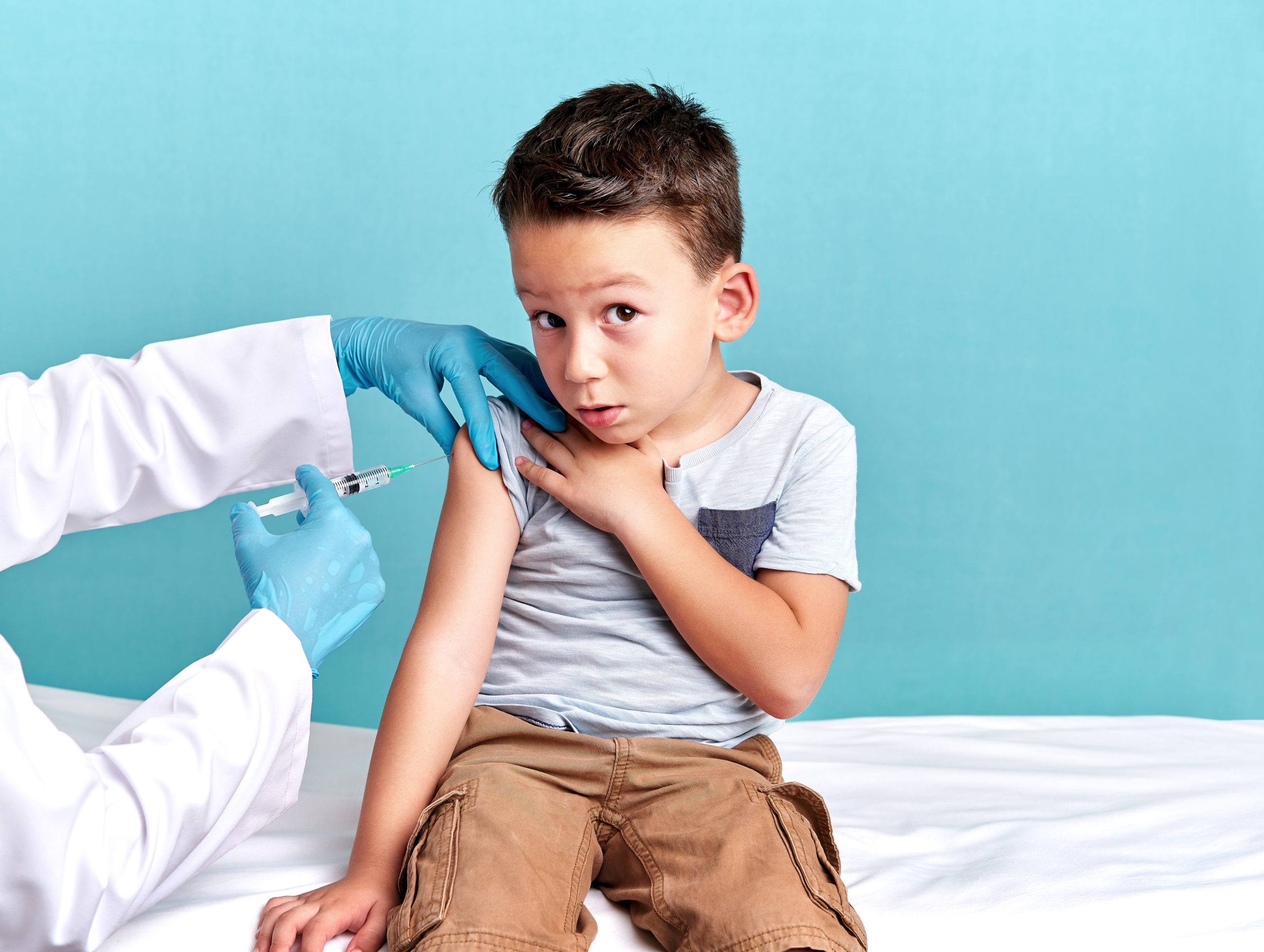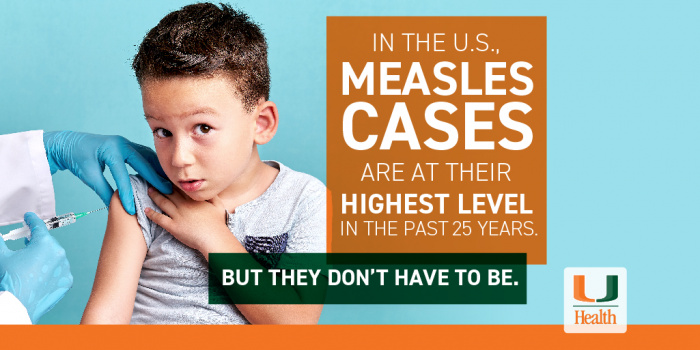We’re Eradicating These Diseases — Again?

Measles cases in the United States are at their highest level in the past 25 years.
All you have to do is watch the news these days to realize that measles is a growing concern — again. For a disease that was officially eliminated from the United States in 2000, the number of cases in the country as of late April is sitting at 704 and rising. The outbreaks have impacted not only Florida, but California, Georgia, New York, and many other states around the nation. It’s a serious enough issue that the Centers for Disease Control (CDC) held a news conference on the matter recently to discuss the risks and action steps.
According to the CDC, there are a number of factors at play in the recent resurgence. Number one: a greater number of travelers are contracting measles in other countries, and then bringing it back to the United States. But the CDC also notes that people who are not vaccinated are further fueling the outbreaks. The majority of people developing the disease in the recent outbreaks have not been vaccinated.
“I do believe that people not vaccinating their children is becoming a growing trend,” says Dr. Thomas Hooton, infectious disease expert with the University of Miami Health System. “There have always been pockets of this, but we’re seeing it more and more. Many people are suspicious of vaccines.”
The measles vaccine = more than 90% effective

People who are opposed to vaccinations, or anti-vaxxers, cite a number of reasons for their stance. The claims range from religious beliefs to a fear that vaccinations may cause autism. But the autism belief is unfounded, says Dr. Hooton. The bottom line is that vaccines are highly effective. This recent outbreak of measles among people who are not vaccinated is more proof of just how important they are.
“Before vaccines, there were many deaths and serious complications related to measles,” he says. “But the measles vaccine is more than 90 percent effective, and it also prevents complications related to measles.”
Vaccines are not only a personal health issue, but a public one as well. When the majority of people in a community get vaccines, they’re not only protecting themselves, but the entire community. “Some people can’t take vaccines due to compromised immunity or being too young,” says Dr. Hooton. “So if you’re not getting your children vaccinated, you’re putting the whole community at risk.”
I got vaccinated when I was young. Should I get another measles vaccine?
Years ago, most adults only received one measles vaccine, and the standard today is for children to receive two. With the rising risk of measles, some adults wonder if they might benefit from getting another measles vaccine, even if they were vaccinated as a child. But, according to the CDC, most adults are well-protected with just one measles vaccine. If you plan to travel internationally or enter a high-risk setting for measles, however, they recommend receiving another vaccine. You can ask your doctor about your vaccine history to determine if you received one or two vaccines.
Yup, TB is back too.
Tuberculosis, another nearly eradicated disease is making headlines again. This bacterial disease has been in steady decline for decades, and typically does not require a vaccine. But, thanks in large part to international travelers, outbreaks do occur from time to time around the U.S.
Doctors can effectively treat TB with medicine. If you don’t take medicine, it can be quite dangerous and even potentially fatal. Considering this, it’s important to recognize the symptoms of tuberculosis. If you have a bad cough that lasts three weeks or longer, chest pain, fatigue, fever, sweating, and loss of appetite, it’s important to seek medical attention. Typically, a combination of medicines must be taken for several months in order to completely cure your body of an active tuberculosis infection.
Wyatt Myers is a contributing writer for UMiami Health News.
Tags: eradicated diseases, infectious disease, measles, tuberculosis, Vaccines
